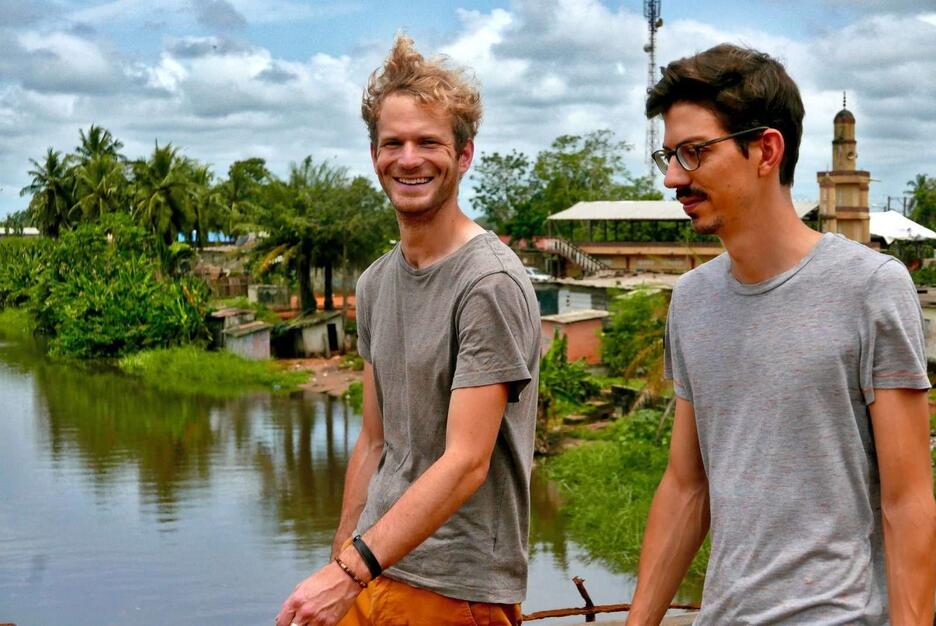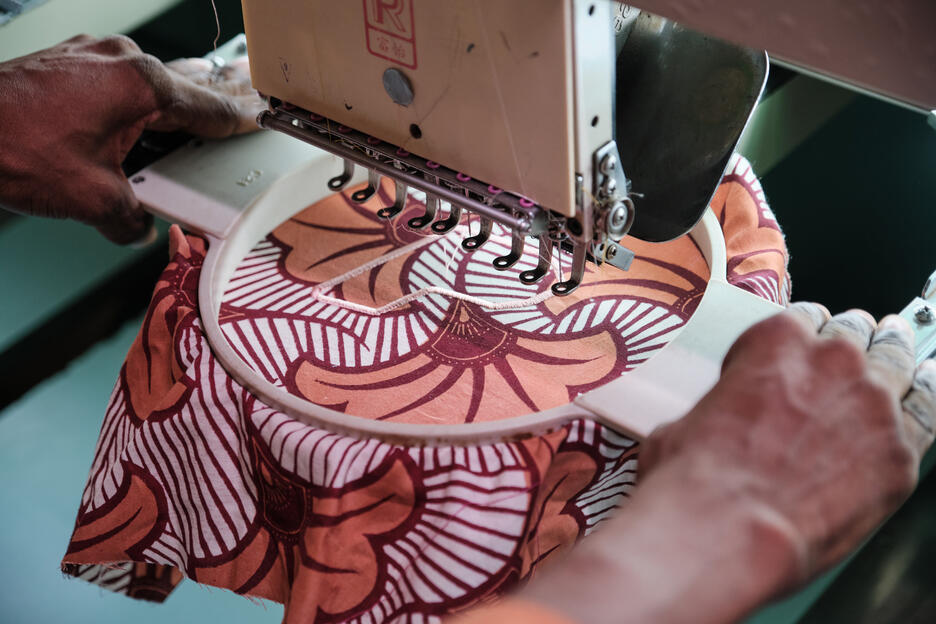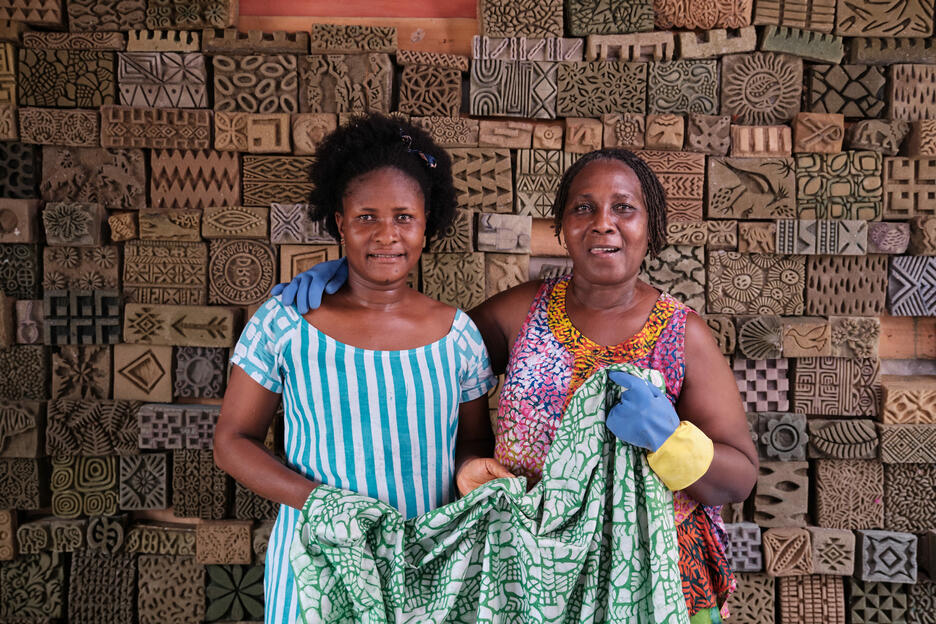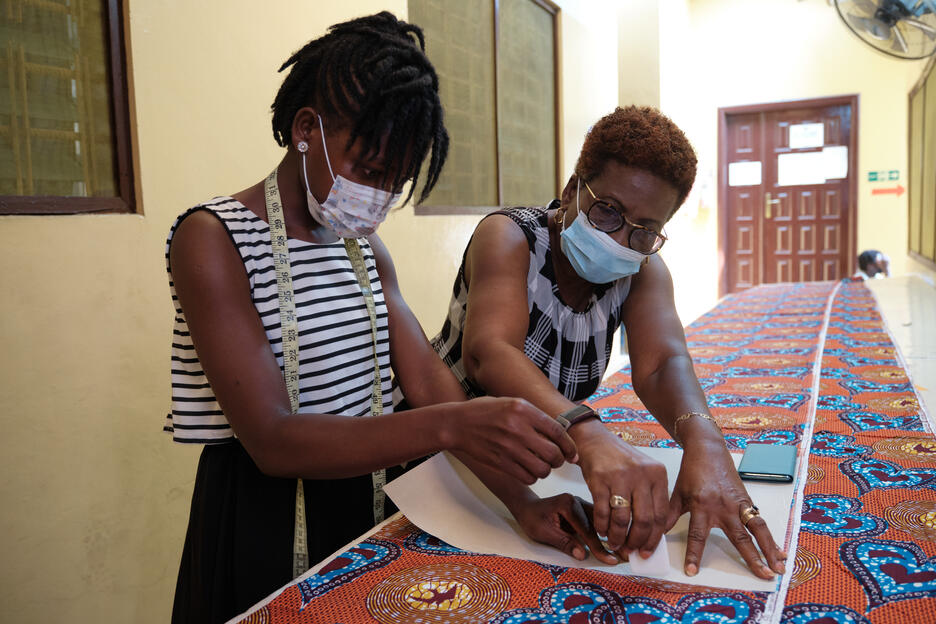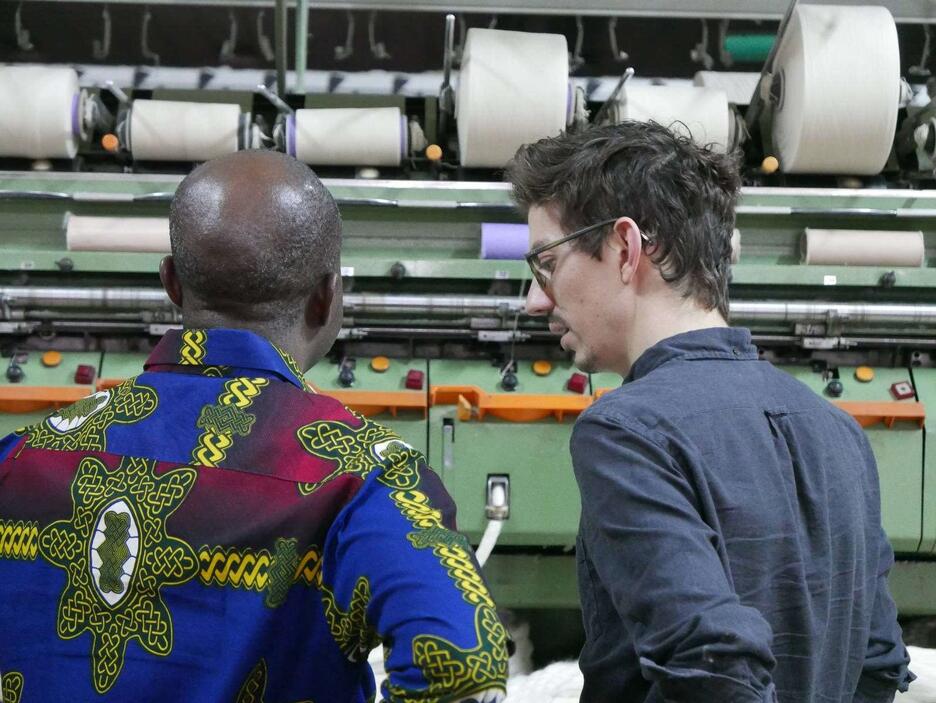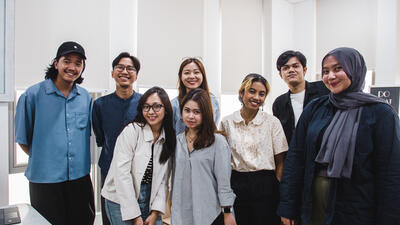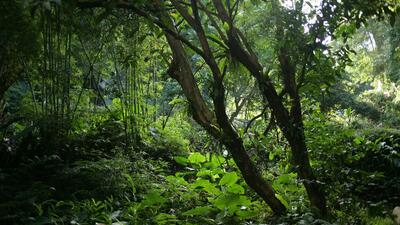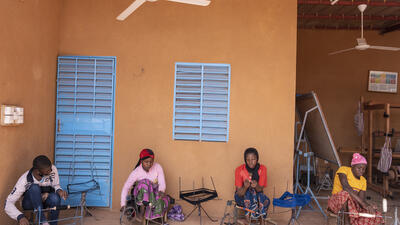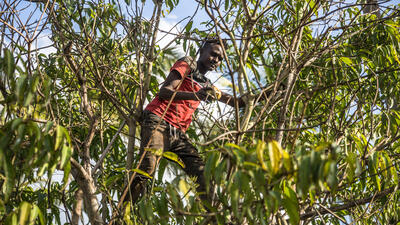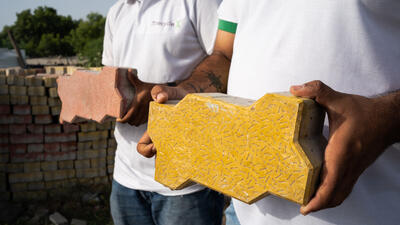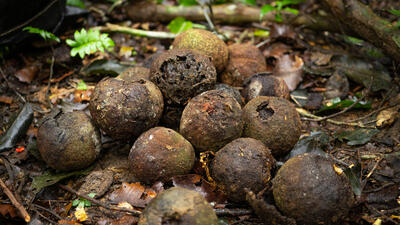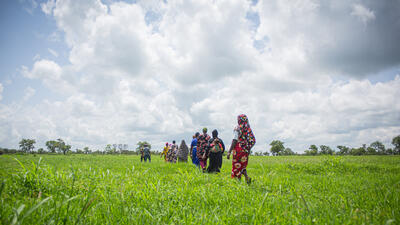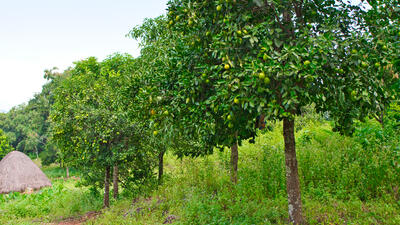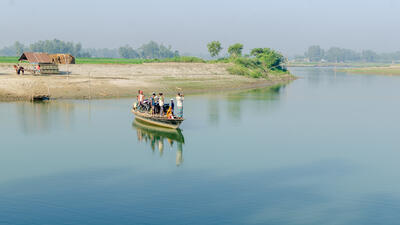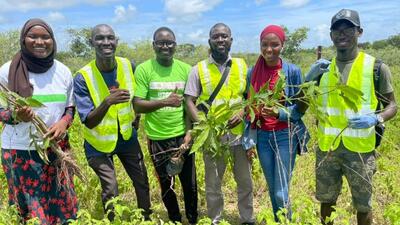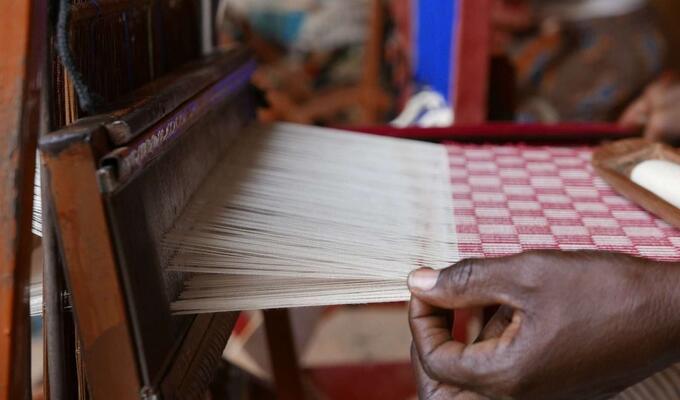
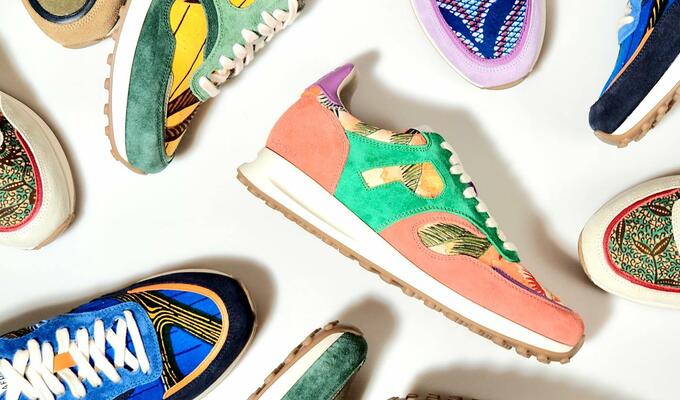
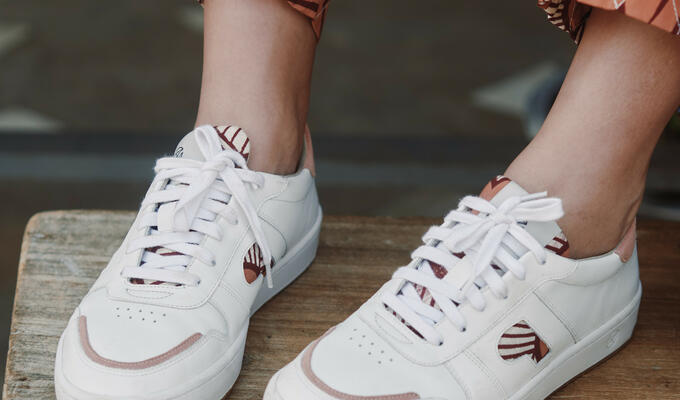
Invest in Africa, get 100% African fashion products
Trade Forum talked with Hugues Didier, co-founder of ethical and sustainable fashion brand Panafrica. From the fascinating prints and fabrics of West Africa, building your business as a social entrepreneur despite the many challenges, and tackling a forgotten supply chain with meaning: read on to learn about the continent’s huge potential.
My first job after university brought me to West Africa, where I spent three years in Senegal, Côte d’Ivoire and Congo-Brazzaville working for a company that finances small businesses and entrepreneurs. The experience was amazing – both personally and professionally.
My friend from university, Vulfran, and I always knew we wanted to open a business one day. The time had come – inspired by the fabrics and prints I had seen in West Africa, we quit our jobs and jumped straight into the business world. We were ready to produce something with a purpose and have a meaningful job. Africa bursts with creativity – and we wanted to bring African materials and finished products to the world.
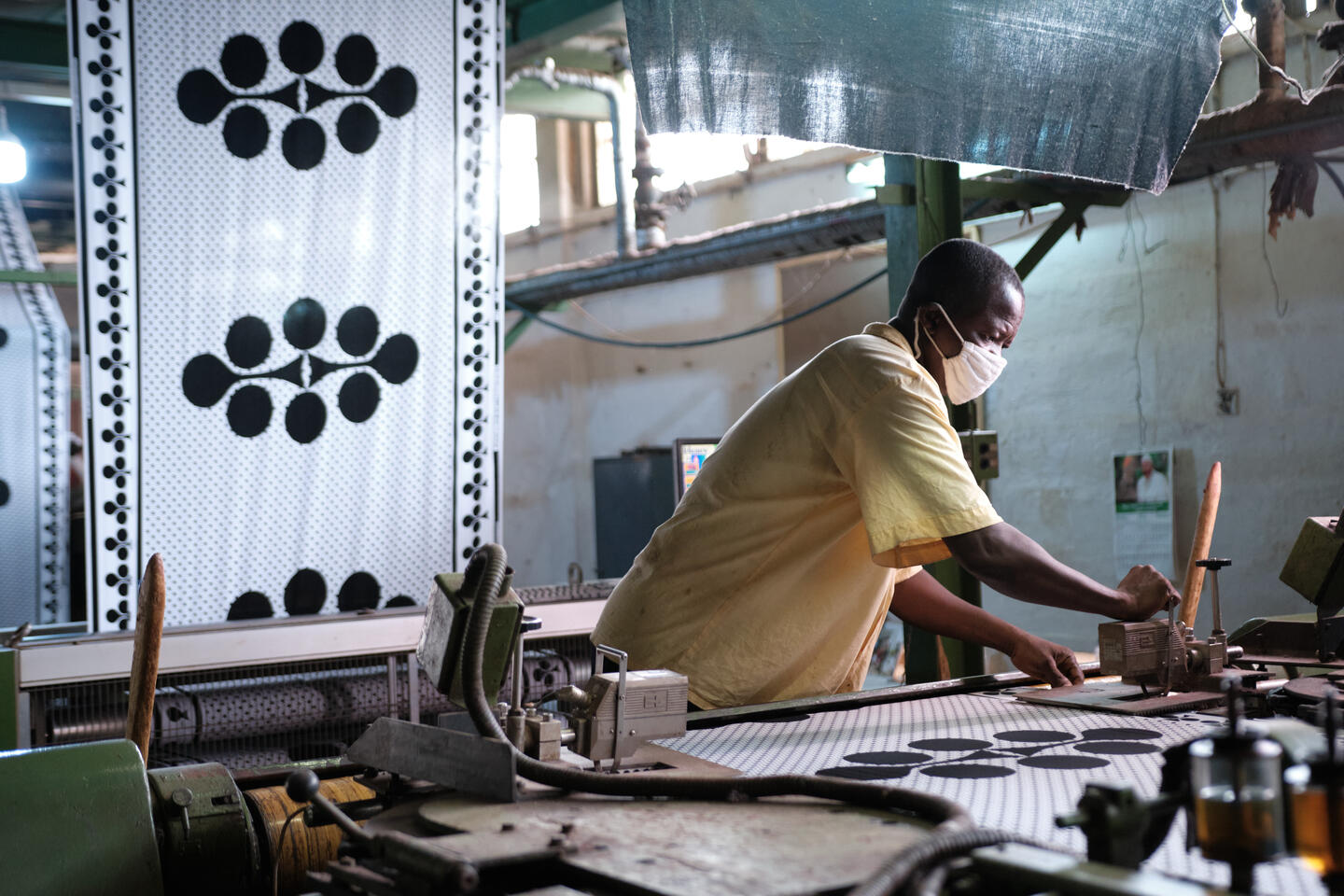
For us it is key that our material comes from Africa. We do not want to buy fake wax prints made in China or India. Sourcing this, we learned a lot about the textile sector in Africa.
First, we realized that most of the printing factories were closing, because of the competition from imported, cheaper fabrics made in Asia. We now source from the main producer of wax prints in Côte d’Ivoire, UNIWAX.
We also appreciate the specific know-how of African manufacturing; you do not find that everywhere. We found our luck with a shoe-making factory in Morocco. But we had to visit over 20 factories before finding the right one. These visits gave us a taste of the reality of factory work. We did not want to hire a company that treated their employees unfairly or unethically.
Today we are facing the challenge of sourcing materials from Africa. We recently launched our garment line produced in Ghana. But you cannot find organic cotton yarn or fibres there, only the raw material.
We tried to source this from a factory in northern Côte d’Ivoire and import to Ghana, but it took six months to produce 1,000 metres of yarn and the import costs were insane. It is cheaper for Africa to import plastic-based materials all the way from Asia than produce yarn with their own materials and ship it from a neighbouring country.
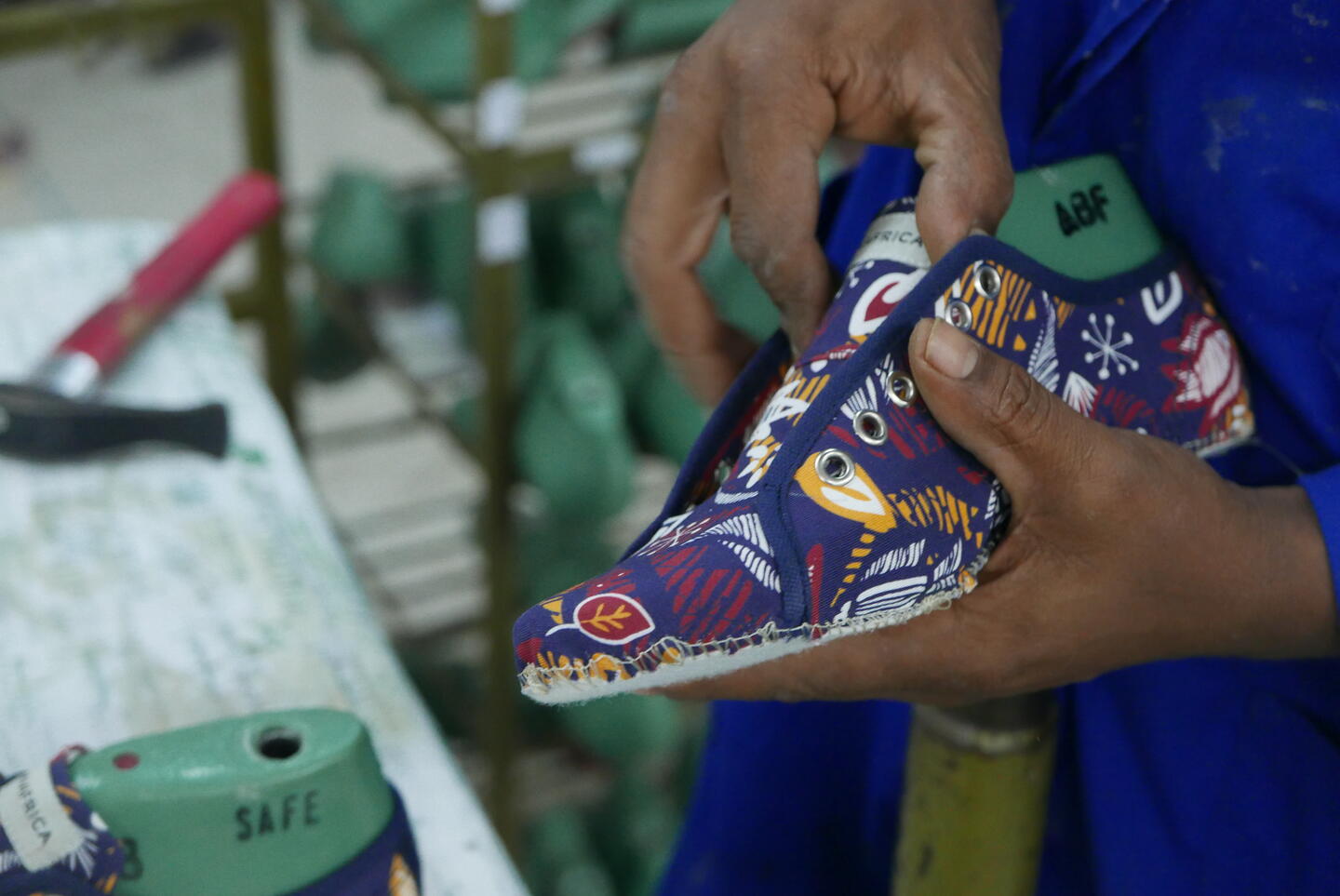
What do you see is missing for a supply chain that works?
You need an enabling business ecosystem. The potential is there, the demand and raw materials too, but the offer is missing. You need to invest in Africa, in modernizing machines and factories.
You also need training and to tackle customs and logistics – simply said, you need an ecosystem that works together for one goal: to make your business possible. And you cannot do that alone. Private initiatives are key in making the first step, but the government needs to support that too.
Which role do partners play for your business?
We work with cooperatives, NGOs and the International Trade Centre to expand our production line. GIZ and ITC opened doors for us in Accra. They had the right contacts and supported us financially in organizing a photo shoot for our products.
It is hard to do all that as an emerging, young company. You need partners and the partners need you – it is a win-win for the artists and us as a business. And partners are key to help achieve that win-win.
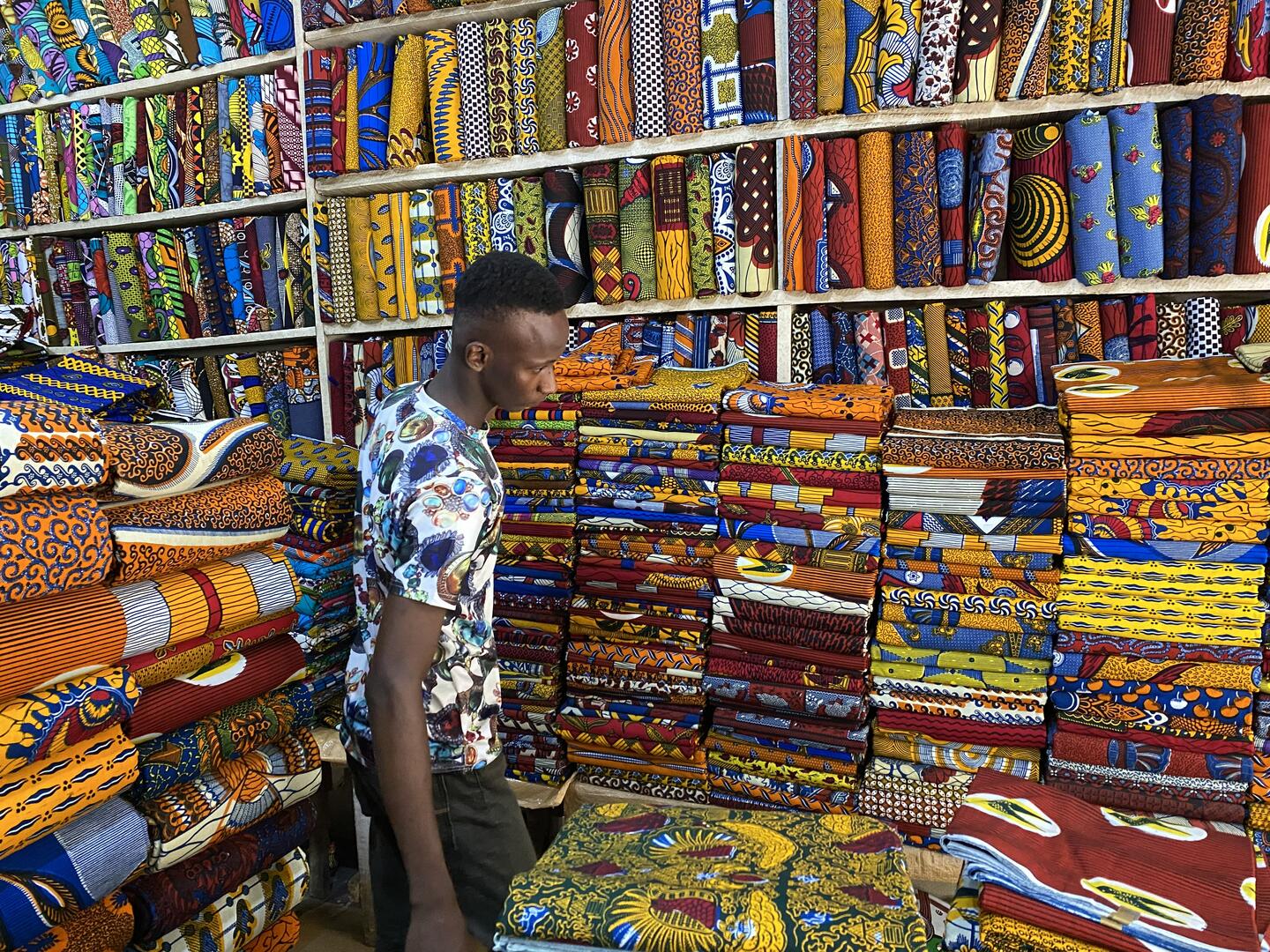
Which immediate and long-term challenges do you foresee in the sustainable fashion industry?
The industry is much more advanced than others, and this is mostly thanks to the brands. The brand educates the consumers.
With that, the expectations are higher, which is good as it forces us to be even more transparent, more sustainable – this can also be a challenge. But a good challenge.
What does Panafrica’s future look like?
We have big plans! We just got private funding, so we want to accelerate our development.
We want to have a stronger online presence and enter the wholesale market: our target is to have 300 retailers sell our products in the next three years.
We want to open a flagship store in Paris next year and create innovative partnerships with new talents in Africa to expand our product line.
It’s an evolving business. And we learn every day. And this is exciting!
Panafrica has been working together with the International Trade Centre under the Africa Fashion and Textile Accelerator Network (Africa FAN) to contribute to job creation in the local textile and apparel industries. Africa FAN is set up by the Special Initiative on Training and Job Creation of the German Federal Ministry or Economic Cooperation and Development (BMZ) and is jointly implemented by the Deutsche Gesellschaft für Internationale Zusammenarbeit (GIZ) GmbH and the International Trade Centre.




